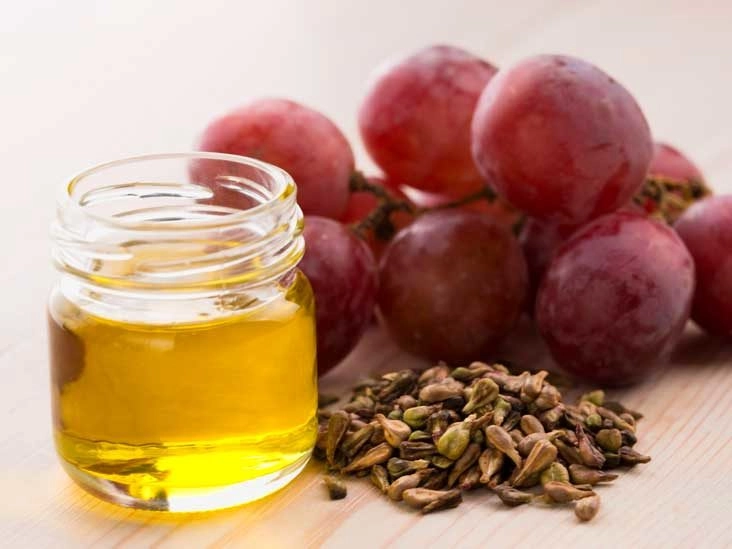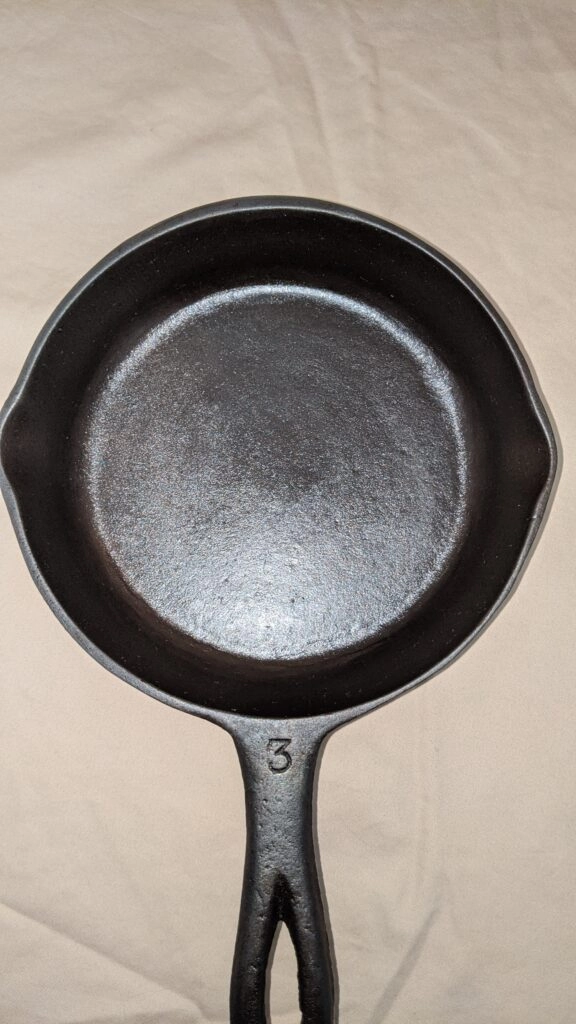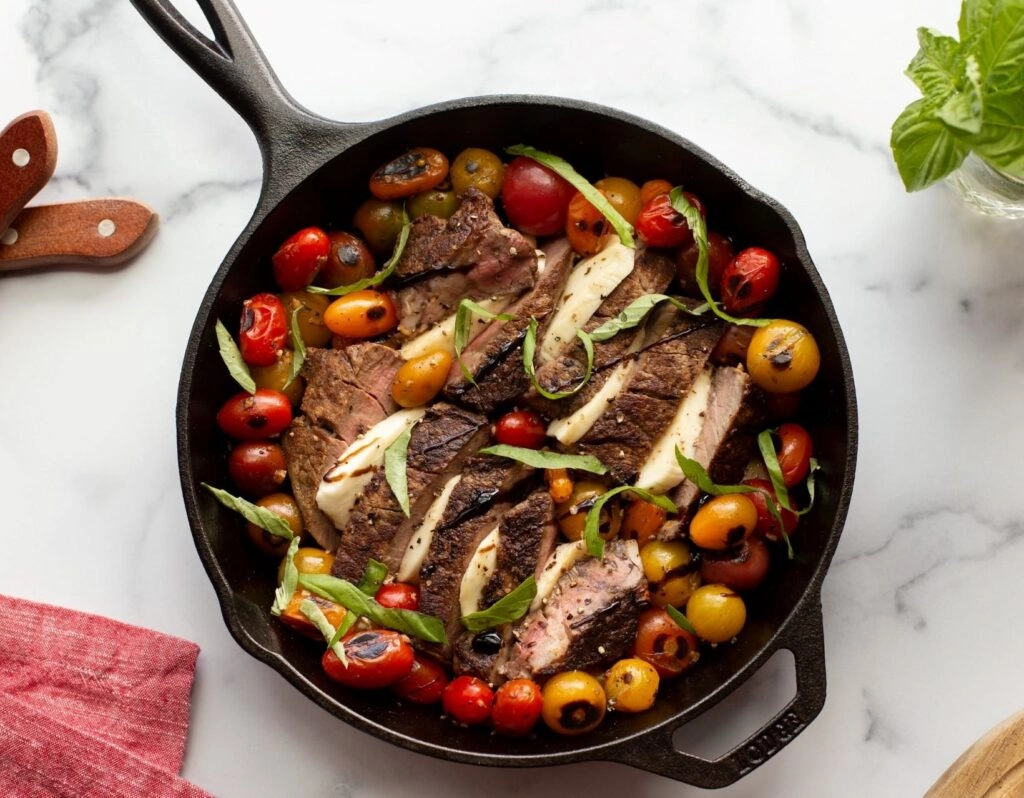What is cast iron seasoning?
You may or may not know different oils have different smoke points which brings up the question of cast iron seasoning temp which I will answer below…
In this modern-day and age, You and I carefully pick our lifestyle choices to improve our health. We choose excellent quality food and tools that make our? lives better. One of these great improvements in the cast iron pan seasoning.
This type of seasoning, however, has no relation to the outcome flavor of the food. This is only to maintain the non-stick features of your cast iron cooking tools.
What exactly is cast iron cookware seasoning?
The process of seasoning your cookware involves the usage of certain oils with good characteristics. This process is a layer of carbonized oil that acts as the protective layer of the cookware.
This is what gives the cookware a great finish which makes both cleaning and cooking easier. The science behind this seasoning process is polymerization.
According to experts, polymerization is when the oils are heated at a high temperature it transforms from wet liquid to a hardened surface.
What are the different oils for cast iron seasoning?
Cast iron seasoning is a process wherein it improves the quality of the cookware. It gives off a better non-stick capacity and builds a durable coating.
There are many oils for cast iron seasoning that have their advantages and disadvantages. Below is a bullet-form summary of the best seasoning oils.
Cast iron seasoning grapeseed oil
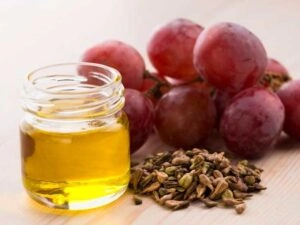
The top recommended oil for cast iron cookware seasoning is grapeseed oil. Grapeseed oil is one of the most popular and commonly used in the cast iron seasoning industry.
Professional chefs and experts use this oil because of its great seasoning functionality. Professionals also suggest that this oil is by far the healthiest oil used in seasoning. It is also hailed as moderately priced which makes it the best option.
The difference that sets it apart from most other oils is that it has a high smoking point. It can go as high as 420 degrees Fahrenheit. Combining its high smoking point, healthy oil option, and price range, this oil is very much recommended as the number one option as experts say.
PROS:
- High smoke point. 420 degrees Fahrenheit.
- Relatively cheaper than most oils.
- Healthier oil option.
- The best recommendation for many professionals.
Cast iron seasoning flaxseed oil

Some professionals also suggest that flaxseed oil is the best option for cast iron seasoning. This has been reviewed and seen through a scientific view. However, it has a lower smoke point than the grapeseed oil which makes other professionals unconvinced.
It can only go up to about 225 degrees Fahrenheit. It has also been tagged as an expensive option of oil. Using flaxseed oil gives the cast iron a hard, polished finish, and has an excellent amount of omega 3 fatty acids.
This is better compared to other oils because it softens the pan. It also makes the cast iron cookware less prone to scratching and wearing out.
PROS:
- Gives a hard, polished finish to the cookware.
- Makes the cookware less prone to scratches and from wearing out.
CONS:
- Low smoke point.
- 225 degrees Fahrenheit.
Expensive.
Cast iron seasoning avocado oil
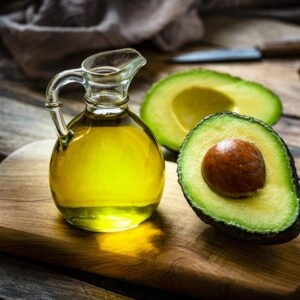
The third best option for the experts is avocado oil. This is because it has the highest smoke point above all other oils for cast iron seasoning. However, having this extremely high smoke point has its advantages and disadvantages.
Some prefer it because of this advantage but most professionals caution others because this is a dangerously high temperature. While its smoke point is its main advantage, if the seasoning process is done greatly, the outcome is excellent.
If the avocado oil has been successfully seasoned to the cast iron pan, you may be able to cook at high temperatures. The bond in the cast iron will highly unlikely be destroyed. It also has great health benefits and has a neutral flavor
PROS:
- The highest smoke point above all oils.
- Breaking of the polymerization bond is highly unlikely.
- Great health benefits.
- Neutral flavor.
CONS:
- The extremely high temperature is needed for seasoning.
Cast iron seasoning Canola oil

Another oil for cast iron seasoning that made it to the list is canola oil. Canola oil is one of the cheapest oils used for cast iron seasoning.
This can be found in the pantry of many households and is commonly used for cooking. However, the first seasoning process with this oil is weak and has a bad surface.
Professionals also say that this oil is not as non-stick as the other oils.
Although its most excellent advantage is its cost, it also has a relatively high smoke point. Canola oils can go up to about 400 degrees Fahrenheit which is in the same category as grapeseed oil.
This also has a neutral flavor that doesn’t affect the foods being cooked.
PROS:
- Commonly found in most household pantries.
- Cheap.
- High smoke point. 400 degrees Fahrenheit.
- Neutral flavor.
CONS:
- This seasoning is not promising.
- Does not make the cookware non-sticky enough.
Cast iron seasoning olive oil

The cast-iron seasoning olive oil is one of the recommended oils as suggested by specialists. Olive oils have a smoking point lower than most oils for cast iron seasoning. It is said to go about 375 degrees Fahrenheit.
These oils are very aromatic and mostly go along well with all the foods being cooked. However, health professionals warn the public about the use of this because it releases harmful carcinogens.
While aromatic is one of its greatest advantages, it is also said to be relatively cheaper than other premium oils. It also gives a soft and delicious flavor to the food.
PROS:
- Aromatic
- Relatively lower smoke point. 375.
- Goes along well with any food.
- Relatively cheaper.
- Adds delicious soft flavor to the food.
CONS:
- It is said that it releases harmful carcinogens when heated above its smoke point.
- It also degrades when heated above its smoke point.
Peanut oil

Peanut oil is also noted in the list of oils for cast iron seasoning. This, however, is reported mostly used in Asian countries as it gives off a peanut flavor to the food.
While it does not blend with other foods, this oil complements well with stir-fried foods that need peanuts. Health professionals also warned the public about the use of this oil because there are people who are allergic to peanuts.
This may trigger their allergy and cause severe damage. One of its greatest advantages is its mid-to-high smoke point. It can go for about 450 degrees Fahrenheit. It is also cheaper than most other oils.
PROS:
- Gives a strong peanut flavor to the food.
- Gets along well with Asian foods.
- High smoke point. 450 degrees Fahrenheit.
- Fairly cheap.
CONS:
- May trigger peanut allergy.
- Does not go well with other foods.
Closing Thought
Modern-day pioneers are now using various blends of the oils above to combine both high smoke properties with long-lasting qualities of other oil to provide the ultimate protection for your cast iron cookware. different oils for cast iron seasoning can be used by themselves.
But how to care for cast iron cookware can best be done by custom blends We prefer the custom blend avocado oil, grapeseed oil, and food-grade beeswax found in TnJ Organic Cast Iron Seasoning
Join our private Facebook Group.


